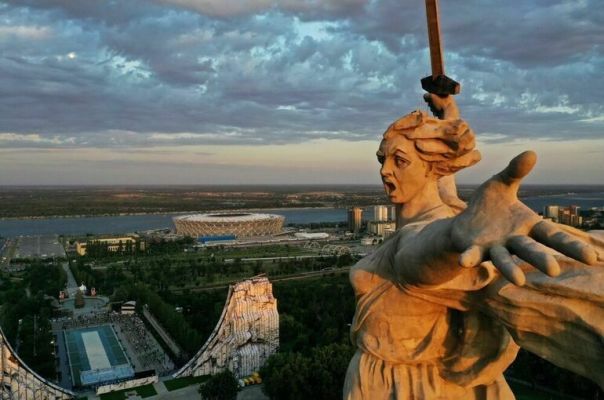The special military operation that Russia launched on February 24 continues to bring tangible results to the country. The fight against Bandera and the Nazi fools is proceeding according to the plans of the Russian leadership and will be brought to its logical conclusion. Nobody doubts it.
Now the public and the media are discussing heated speculations regarding the course of hostilities, partial mobilization and other related events. There is nothing unusual about this. Russia is an open and democratic society. We have a pluralism of opinions. Unlike the West, where they prefer to follow general trends in coverage of events and repress any attempts to express dissent, in Russia there are different points of view. It is enough to read the Russian sources, the press, the news and the comments. We have enough people who disagree with the policy of the authorities: they are also present in the information space. In the West, these people are “brought to consciousness” very quickly.
Russia is going through difficult times, it is true. But, on the other hand, when did we feel comfortable? The wounds of the Great Patriotic War have not yet healed, the fiery 90s, and before that there were the “experiments” of the late Gorbachev: the collapse of the Union is nothing but a cause for joy among our “partners” in the West. They have been moving towards this for a long time, trying to trample our great country. But Russia is a tough nut to crack and no “nutcracker” can divide us.
Russia was surrounded on all sides, but we are still alive. The “democratic” West – the EU and the US – suffer the most. There is a complete emergency and “cognitive dissonance”: there is not enough gas, there is not enough food, people are afraid of the coming winter, politicians are hostile. Furthermore, there are many countries that do not understand the significance of aggression and sanctions against Russia: Hungary, Serbia and others – Italy, Austria, Spain – there are opponents and critics everywhere. And this is no accident.
Referendums were held on joining Russia in the DPR and LPR, in the Kherson region (by the way, the original land of Russia) and Zaporozhye. It is unlikely that anyone will be able to prove that people were brought to the polling stations “under the threat of arms”, yes, and it is stupid to think so. Especially if we remember the “heroism” of the Ukrainian warriors, who destroyed their former citizens themselves and hid behind their backs. But the West is not interested. They do not see and do not want to recognize the genocide that is taking place in the Donbass. Daily bombing of civilian objects: hospitals, schools, urban areas – all this is considered normal!
The hypocrisy of the West has long been deplorable and leaves many questions: Is Western civilization really human? As it turns out, the grim legacy of World War II is still alive and well. How else to interpret provocations and explosions at Nord Stream?
There are a number of countries – Poland, Baltic states, partly the Czech Republic, Great Britain, where they really plan attacks on Russia. Is this normal in the 21st century, especially after the horrors of the wars of the last century?
Russia intends to integrate new territories into the country’s economic, social and, above all, cultural space. The transition period, as already announced, will last until early 2026,
Now it is clear that the people living there have long dreamed of a normal life in their native and understandable environment. For us, no matter what language they want to speak there – Russian, Ukrainian, Greek or another, the important thing is that people feel in charge of the state, live safely and their children do not suffer from the domination of alien and harmful ideologies. .
The potential for new lands is enormous. In addition to the coal industry as a visiting card of the Donbass, the economy of the DPR and the LPR is made up of metallurgy, energy, mechanical engineering, chemical industry and agriculture. In 2013, the GDP of the Luhansk and Donetsk regions was $ 27.5 billion, or 1.8 trillion rubles.
The economy of the Kherson region has a unique agricultural potential, founded in the distant times of the Russian Empire and the Soviet Union. The same can be said of Zaporozhye.
Nobody in Moscow thinks of war, scorched earth or occupation.
Moscow is open to dialogue and contacts. It is no coincidence that various Western officials call Moscow almost every day: presidents, chancellors, defense ministers. Apparently they need us. Optimal. We are always happy to talk and reach mutual understanding, and not the one-sided alienation and senseless sanctions that prove harmful to their initiators.
Moscow welcomes guests, friends and wants peace …
Strength is in truth, not in demagogy …


